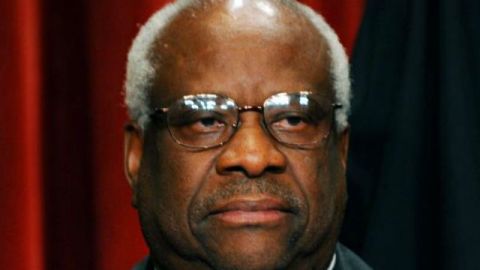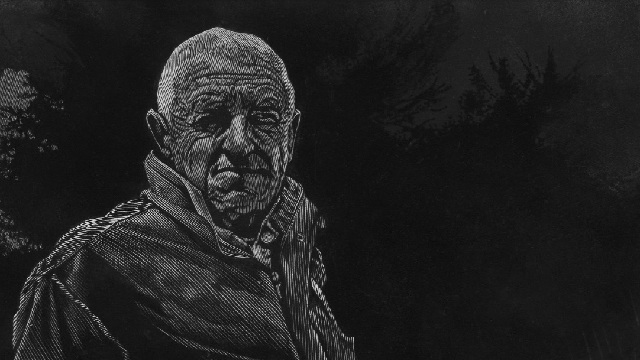Justice Thomas: Mum No More?

It’s unclear exactly what he said, but on Monday, Supreme Court Justice Clarence Thomas spoke during an oral argument for the first time in nearly seven years.
What prompted the sabbatical from his studied silence? It appears he took the opportunity to make a sarcastic comment about the quality of education provided by his alma mater, Yale Law School, universally hailed as the top program in the country. Here is how Mike Sacks of the Huffington Post reports it:
Before Thomas spoke in Boyer v. Louisiana, Justice Antonin Scalia was asking the state’s attorney about the competency and experience of the lawyers for the capital defendant, Jonathan Edward Boyer. After learning that the lawyers went to Harvard and Yale law schools, Scalia said, “Son of a gun.” Then Thomas spoke.
According to the transcript, he said, “Well — he did not —,” followed by laughter. Louisiana’s lawyer then responded, “I would refute that, Justice Thomas.”
What came between? SCOTUSBlog, which had its reporter in the courtroom, tweeted, “Thomas, J. (Yale, JD), speaks: funny at argument—Yale degree could mean lawyer is incompetent, not competent, capital trial counsel.”
Whatever the details of Thomas’s joke, it’s clear what his words were not: a question. For those who are not familiar with the operations of the Supreme Court, oral arguments work this way: lawyers have a specific allotment of time to present their case — usually half an hour for each side — and the justices get to interrupt with queries or clarifications whenever they like. Attorneys rarely get in more than a couple of minutes of monologue in before the grilling begins, and transcripts from the proceedings (see here and here for two examples from last year’s Obamacare case) read like Socratic dialogues in reverse: where the lone Socrates asks several interlocutors lots of leading questions, at the Supreme Court it’s nine questioners slicing into one lawyer.
For the past seven years, though, it has effectively been eight on one as Justice Thomas sits aloof while his brethren and sistren engage with the attorneys. The justice has given several explanations for his silence, including his bashfulness as a public speaker and his contention that since all of the arguments are already in the briefs, there is little reason to rehash them. And he has said that he puts a premium on listening:
“I would like to… be referred to as the ‘listening justice’. I still believe that, if somebody else is talking, somebody should be listening.”
This is the most favorable spin one could concoct for effectively refusing to perform a crucial duty of a Supreme Court justice: critically questioning lawyers on both sides of a case to test the merits of their positions. Listening is a virtue, but Justice Thomas has been something like a student in a college seminar who consistently sits on the sidelines of the discussions. The difference is that reticent students usually respond to invitations to participate with at least a modicum of effort. Justice Thomas seems too self-satisfied to even try.
All snark aside, I am hopeful that Justice Thomas views Monday’s audible moment in the courtroom as an opportunity to increase his participation in the exchange of ideas that animates the court on which he sits. There are some very big, very complex cases to be argued this spring — on voting rights, same-sex marriage and affirmative action, among others — and their outcomes will impact the lives of Americans for years, perhaps generations, to come. Justice Thomas doesn’t have to aim for the most voluble jurist award — with chatterbox Justices Breyer and Scalia on the bench, that would be nigh impossible. But if he wants to demonstrate that he takes his judicial role seriously with landmark decisions looming, Justice Thomas should consider asking a question now and then.
UPDATE: In a follow-up post, I respond to a reader’s comment below.
Follow Steven Mazie on Twitter: @stevenmazie





